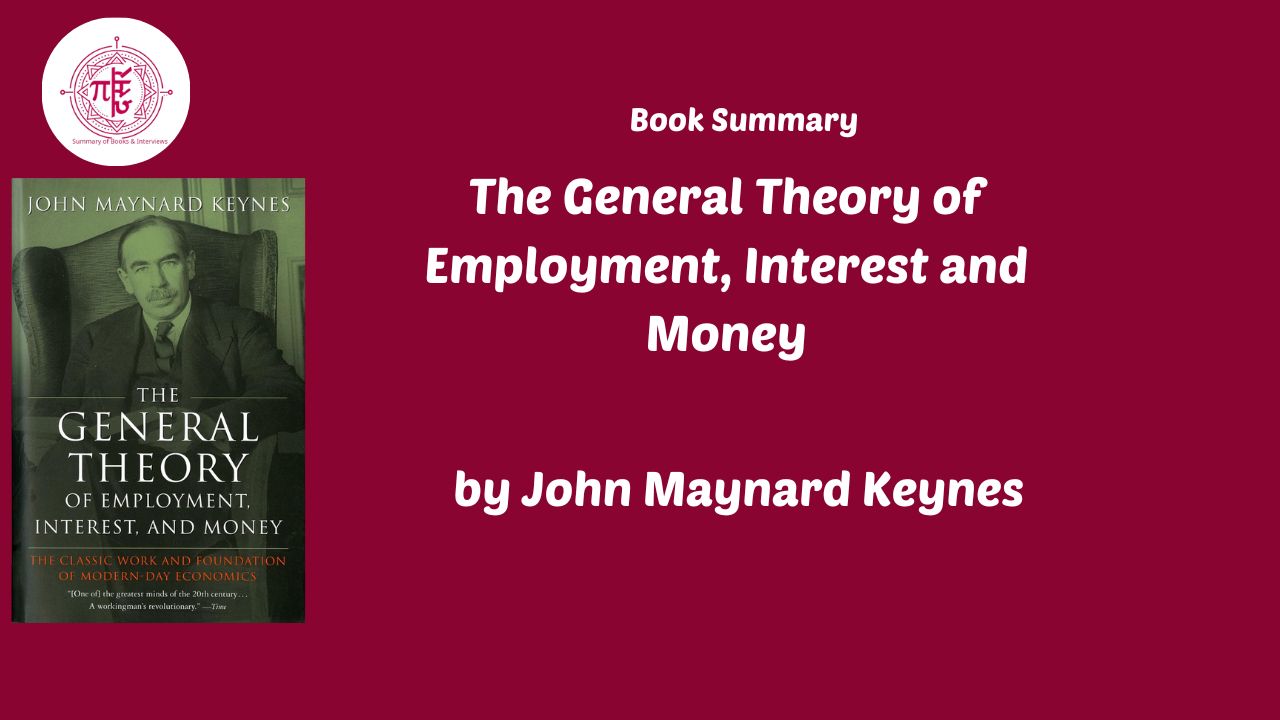
The General Theory of Employment, Interest and Money#
Published in 1936, “The General Theory of Employment, Interest and Money” is a foundational work in economics written by John Maynard Keynes. The book revolutionized economic thought by introducing new ideas on the nature of economic activity, the role of government policy, and the behavior of markets.
Book Overview:
“The General Theory” consists of 16 chapters that explore:
- The Definition of Economics: Chapter 1 discusses the definition of economics and the nature of economic inquiry.
- The General Problem of Economic Theory: Chapter 2 examines the limitations of classical economics and presents Keynes’ approach to understanding economic activity.
- The Paradox of Saving: Chapter 3 explores the paradox of saving, which highlights the tension between individual preferences for saving and consumption.
- The Concept of Liquidity Preference: Chapter 5 introduces the concept of liquidity preference, which explains why people are willing to accept lower interest rates to hold more cash.
- The Theory of Interest: Chapters 6-8 discuss the theory of interest, including the relationship between interest rates and inflation, and the role of expectations in determining interest rates.
Key Concepts:
- The Keynesian Cross: The book introduces the concept of the Keynesian cross, a graphical representation that shows the equilibrium between consumption and investment.
- Aggregate Demand: Keynes emphasizes the importance of aggregate demand as the driving force behind economic activity.
- Deficit Spending: He argues that government can use deficit spending to stimulate economic growth during times of recession or depression.
- The Liquidity Trap: The book explores the concept of the liquidity trap, which describes a situation where interest rates fall to zero and people are reluctant to hold cash.
Key Ideas:
- Rejection of Laissez-Faire Economics: Keynes rejects the idea that governments should remain hands-off in economic matters, arguing that government intervention is necessary to stabilize the economy.
- The Importance of Government Policy: He emphasizes the importance of government policy in shaping economic outcomes and argues that fiscal policy can be used to stabilize the economy.
- The Role of Expectations: Keynes highlights the role of expectations in determining interest rates and economic activity, arguing that these expectations are subject to revision as new information becomes available.
- The Limits of Individual Choice: He argues that individual choice is limited by uncertainty, which leads people to rely on aggregates and institutions rather than making rational choices.
Influence and Legacy:
“The General Theory” has had a profound impact on economic thought, influencing:
- Keynesian Economics: The book established Keynesian economics as a major school of thought in macroeconomics.
- Monetarism: Milton Friedman’s monetarist approach to economics was influenced by Keynes’ ideas on the role of money and expectations.
- Fiscal Policy: Keynes’ emphasis on fiscal policy has shaped government economic policies around the world.
- Globalization: The book’s focus on global trade and investment has influenced our understanding of globalization.
Criticisms and Controversies:
- Critique of Classical Economics: Some critics argue that Keynes overemphasizes the role of government intervention and underestimates the limitations of individual choice.
- Assumptions about Human Behavior: The book relies on simplifying assumptions about human behavior, which have been criticized for being overly simplistic.
- Lack of Empirical Support: Keynes’ ideas were initially met with skepticism by many economists, who argued that they lacked empirical support.
Conclusion:
“The General Theory” is a foundational work in economics that continues to shape our understanding of economic activity and the role of government policy. While it has faced criticisms and controversies, the book remains an important contribution to the development of macroeconomics.


Comments: